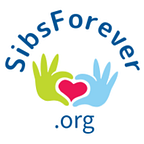Redefining Fitness at 68: My Essential Cooldown Routine
This is the first entry in the "Redefining Fitness at 68" series. More stories will follow.
I am a fit 68-year-old woman who works out most days. My weekly workout schedule (shown below) is a constant in my life.
I wake up each morning excited to begin the day with exercise. My favorite cardio is Cardio Dance, followed by Kickboxing, HIIT, and Step Aerobics. Being a serious yogi is a big piece of who I am, as is being strong and muscular.
I want to continue exercising at this level of intensity for as long as possible. So, to prioritize remaining injury-free, I incorporate generous 5–7 minute warmup routines and 3–4 minute cooldown sequences to all workouts without exception.
This is my favorite post-cardio cooldown routine, which I do frequently after cardio segments:
I always start my cooldown with a hip opener. As shown above, I am doing a Yogi Squat to open my hips. If this position is not accessible, a modified wide-leg squat can be used as the initial hip opening position. I recommended holding this position long enough to count slowly from one to five.
I emerge from the squatting position by turning my toes inward and slowly straightening my legs to achieve a standing forward bend position (sometimes called a forward fold). Stay in this position, gently rocking from side to side while counting to five.
The next stretch I do in my cooldown sequence is a Runner's Lunge (shown above), starting with both hands on the ground and then adding a twist facing the bent knee. The added twist opens the chest and shoulders and further engages core muscle groups.
I transition from the Runner's Lunge pose previously described to a modified Pyramid Pose (shown above) by moving my back foot (with bent knee) closer to the front one, slowly standing up, then straightening both legs while turning the back foot out 45 degrees. Once standing, with an engaged core, I bend over the front leg with a flat back. This stretches quads, glutes, and hamstrings and strengthens core muscles.
As shown above, I slide into a Quad Stretch after completing the modified Pyramid Pose.
The last three stretches shown are all on one side (I always start with the right side). After this Quad Stretch, I repeat the Twisted Runner's Lunge, modified Pyramid Pose, and Quad Stretch on the other side (left side for me).
My cooldown routine continues with the Twisted Goddess pose. Begin by standing with legs wider than the hips with toes pointed out 45 degrees. Keep hands directly above knees and bend over with a straight spine. Rotate from side to side, as shown in the above picture. This posture lengthens inner thigh muscles while strengthening the legs and core. Plus, it feels so good, causing me to often linger in this pose.
Following the aforementioned Goddess pose, I stand up as tall as possible with arms stretched overhead for a Side Stretch. First, stretch to the right (for the count of five), followed by the left side stretch. This stretch reduces residual tension in the lower back and legs while lengthening muscles around the ribs.
After the delicious side stretching described above, I transfer all my weight to my right foot, raise my left leg behind, hold onto the inside or outside of the ankle, and pull my heel toward the glutes to achieve a quad stretch (as shown in the initial picture above). After maintaining balance for several seconds in this position, kick the foot out to accomplish a Dancer's Pose position. Then, let go and extend the raised leg (with a pointed toe) for a full Arabesque. Hold each position in the sequence for the count of five.
Repeat the sequence on the other side (i.e., raising the left leg behind).
This sequence targets the quadriceps, legs, and core muscles. Plus, it is terrific for balance and stability.
After completing the Quad Stretch to Arabesque sequence, I focus on ankle mobility by doing 10–20 Ankle Rolls in each direction, as shown in the picture above.
Similarly, I like to end with 3–5 Shoulder Rolls in each direction to target shoulder mobility.
Lastly, I do 10–20 minutes of Rapid Reboot compression in my cooldown sequence. The Rapid Reboot attachments use pressure to reduce soreness for a quicker recovery, similar to a deep tissue massage. Dynamic compression improves circulation, gets rid of swelling and accelerates recovery. I look forward to ending my workout relaxing with the Rapid Reboot recovery system.
And then I'm off to continue my day.
Concluding Thoughts
I want to acknowledge my 14-year-old granddaughter, Brenna, who took all the photos shown here after working out with me in my Guest House workout studio.
No Artificial Intelligence (AI) agents or bots were used in constructing this article.
I plan to produce articles in the Redefining Fitness at 68 series about topics such as strength training, mobility, balance and nutrition. Please post comments to make requests or suggestions.
Disclaimer: The information, experiences, and opinions shared herein are personal to me and are intended for informational purposes only. They should not be construed as advice of any kind. Every person's situation is unique, and you should seek advice from a qualified professional for specific recommendations tailored to your circumstances.
